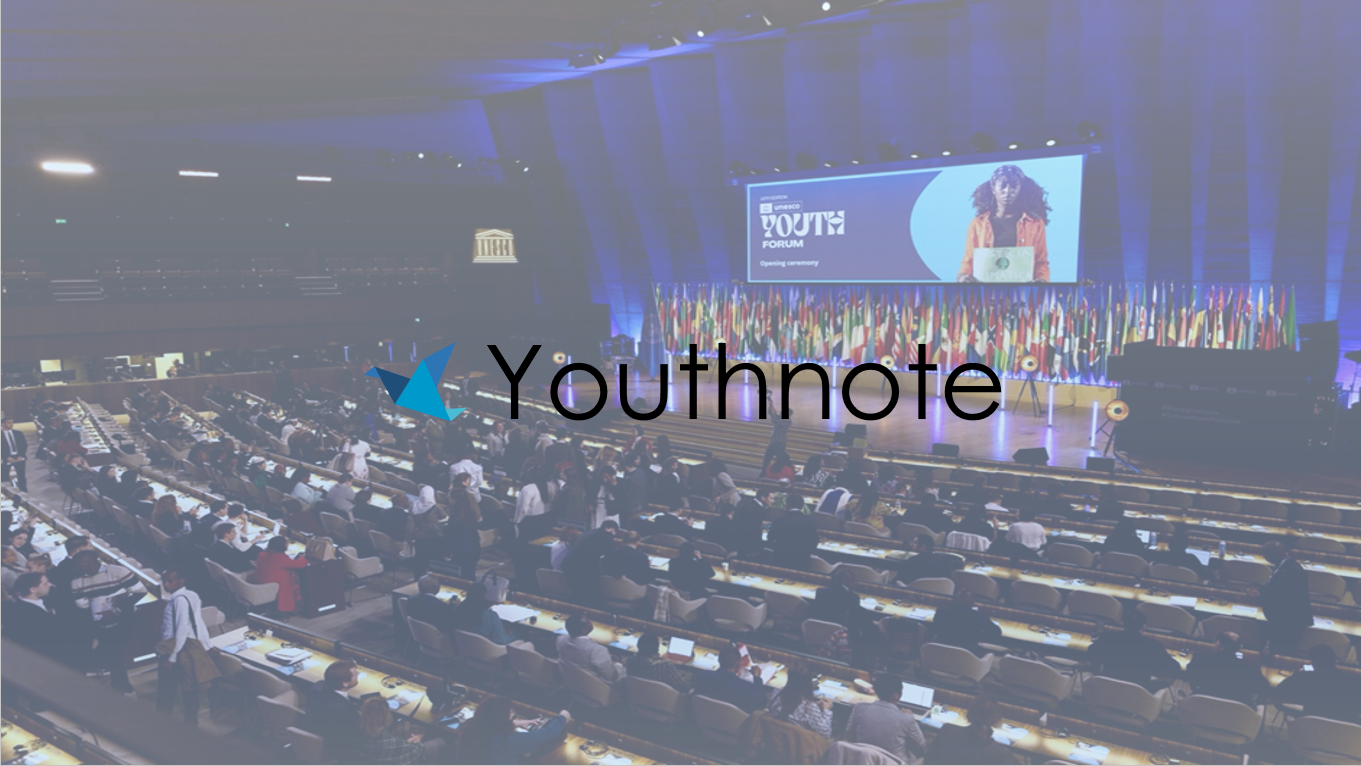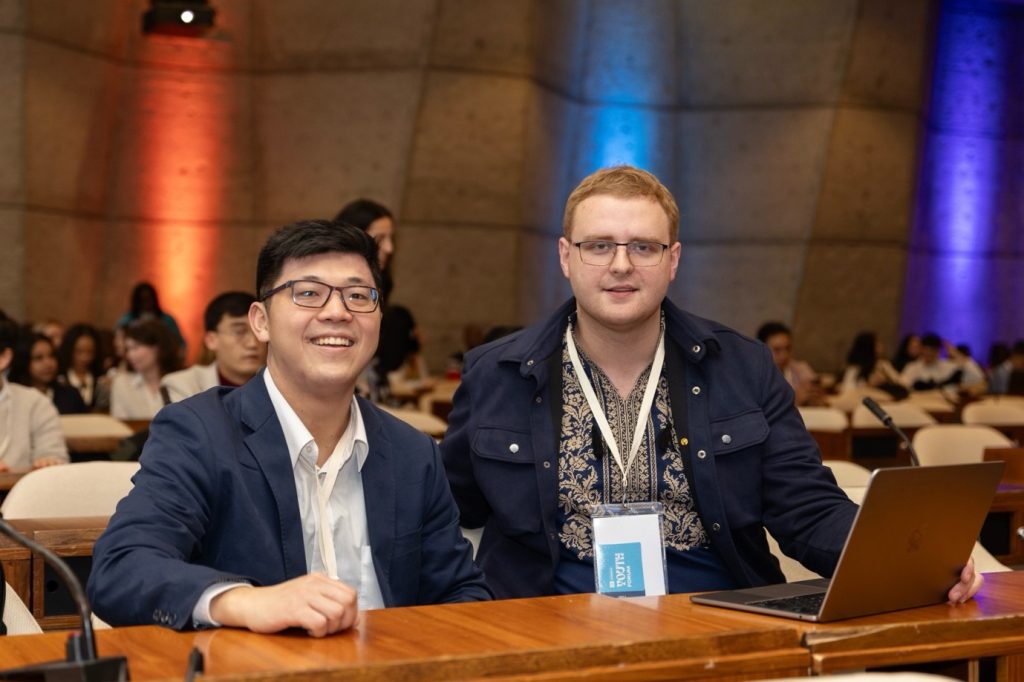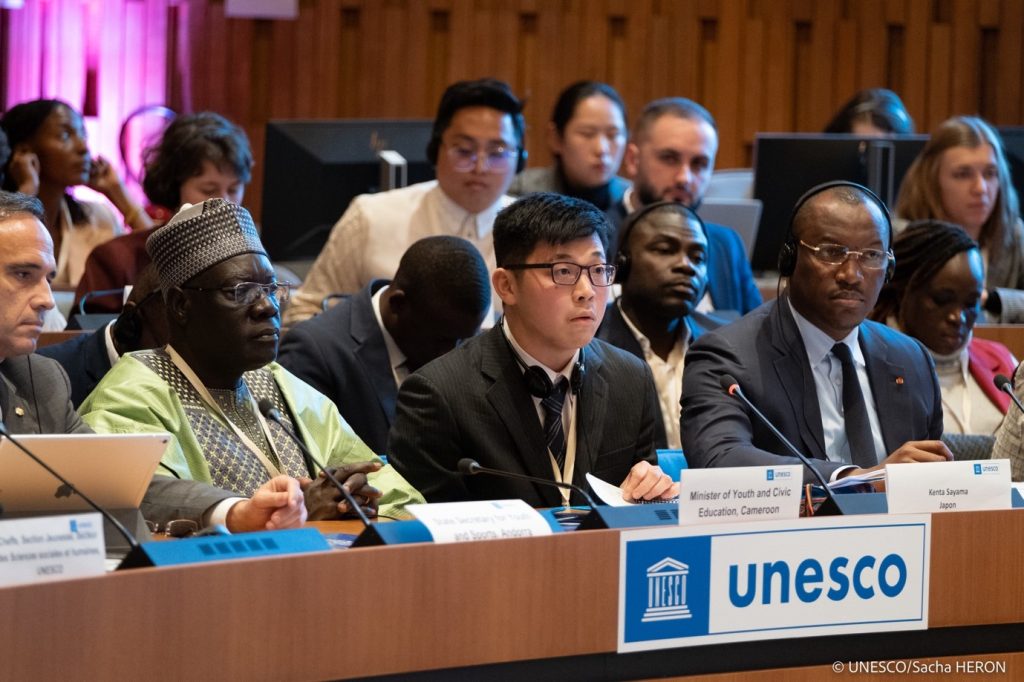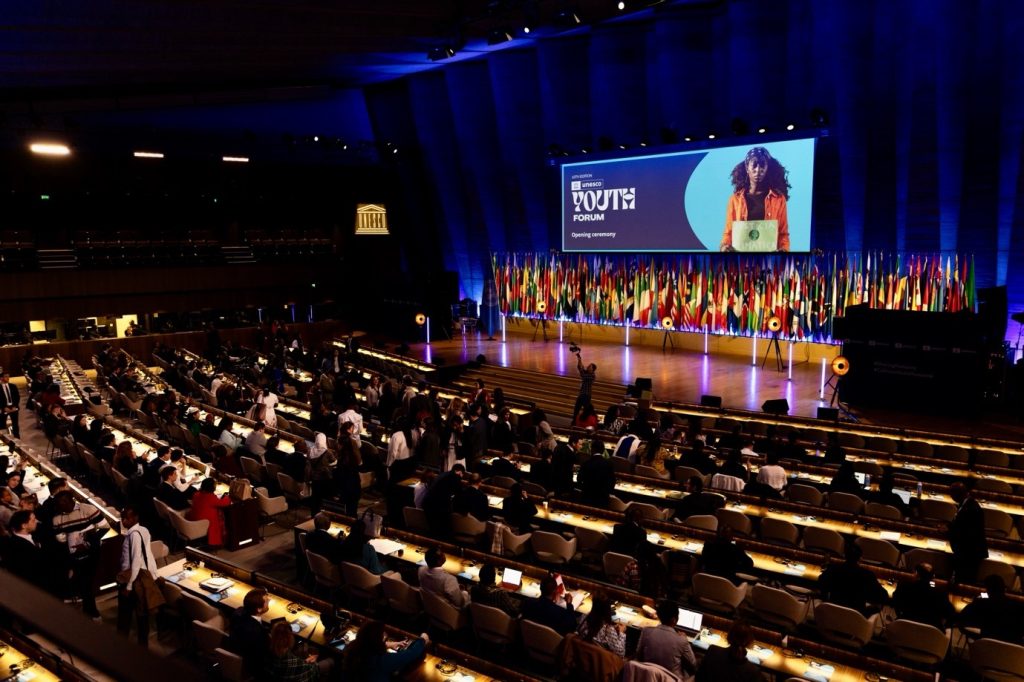
The Power of the Global Youth Community: Reflections from the 13th Edition of the UNESCO Youth Forum
The UNESCO Youth Forum is held once every 2 years and provides youth participants aged 35 and under with a platform to engage in dialogue with government officials from Member States. The forum thereby seeks to grant youth the opportunity to have their voices heard by those shaping policy. Held in 1999 for the first time, the 13th edition of the Forum was held at the UNESCO headquarters in Paris on 14-15 November 2023, with icebreaker activities held on the 13 November.
This forum was based on the theme of the social impacts of climate change and the need to achieve an equitable climate transition. In line with said theme, youth proposals for recommendations were developed for 3 months beginning in August.
I was chosen from among the participants to be a member of the Forum’s steering committee. As such, I worked on developing the programme of the forum, acting as a bridge between UNESCO and other participants. The 2023 forum saw a record number of participants, nearly 170 youth from over 140 countries. During the preparatory stage, participants were divided by region (namely the Asia-Pacific, Arab States, Europe and North America, Latin America and the Caribbean, and Africa) and engaged in activities in their respective regional groups. I was responsible for overseeing meetings in the Asia-Pacific region encompassing New Zealand and Tuvalu in the east to Iran and Turkmenistan in the west. Organising these meetings was no easy feat due to the broad nature of the region, both in terms of time difference and culture. However, with the support from other participants who served as core members of the group, we successfully formulated a proposal outlining our recommendations.
After a long period of preparation, the much-awaited Youth Forum finally arrived. On the whole, it was an incredibly high-spirited and inspiring event. At the beginning, I was overwhelmed by the participants, many of whom were active, curious, and incredibly accomplished in their respective fields. However, the more I interacted with them and learned about their backgrounds and life experiences, the more I was able to perceive them as fellow human beings. We had many interesting and fruitful conversations. I had a particularly memorable conversation with the participant from Ukraine who sat next to me during the ice-breaker activities. This participant was a schoolteacher. His words were heavy and serious. When he posed the question of how he could raise awareness amongst his students regarding environmental issues in Ukraine, where dam failures and other environmental issues were occurring as a result of the war, I found myself at a loss for words. In listening to his reflections, I was once again reminded of the reality that environmental conservation is only possible in times of peace, and that UNESCO’s initiatives and activities, which seek to build peace in people’s minds, are essential in encouraging collaborative global efforts to address environmental issues.

With Mr. Mykola Popadiuk (fellow forum participant from Ukraine) during the ice breaker session
The 2-day forum comprised an opening and closing ceremony, a dialogue session between participants and youth ministers from Member States, discussion sessions to verify and adopt proposed recommendations, presentation of the recommendations to the Member State representatives at the UNESCO General Conference, networking sessions with the respective UNESCO sectors, and discussions to draft UNESCO’s Medium-Term plan. Of these various sessions, the most heated were the dialogue session with the youth ministers, as well as the adoption of the proposed recommendations.
The dialogue session provided precious opportunities for us participants to pose questions regarding our proposed recommendations to youth ministers and high-level policymakers from 25 countries. As a member of the steering committee, I was no exception. I took the opportunity to ask questions regarding digital technology. It was wonderful being able to hear directly from high-level policymakers. However, the session encompassed so much more.

At the dialogue session for youth ministers and Youth Forum participants
The session consisted of two parts. Ministers and policymakers responded to pre-prepared questions in one part, and open-ended impromptu questions in another. At the beginning of the session, the ministers simply read out answers to the questions they had prepared beforehand rather than provide direct answers to additional questions posed by the participants. One participant who got impatient with this spoke out, commenting “if these ministers take our opinions and thoughts seriously, why are they not directly answering our questions? If all they do is read from a script that they have prepared in advance, what is the point of this dialogue session?” As soon as he had expressed his opinion, the other participants erupted in applause. Personally, while I do understand that ministers and government officials are often under immense pressure to avoid saying anything risky or contr, I was impressed by that participant’s courage to speak up and express his opinions rather than simply accepting the situation or perceiving it as inevitable. I hope to learn from him. Nevertheless, there were several ministers that left the room after the participant expressed his comments, which reminded me of the gap between reality and the ideal, and how difficult it can be to reach a point of compromise between the two. Other participants made their voices heard by showing their approval and applauding each minister that gave direct and precise answers to questions posed by participants, indicating that youth can exert their influence in ways other than their statements and words.
I experienced firsthand the difficulties of preparing a proposal that involves international participants with a wide range of opinions. As a member of the steering committee, I was under the impression that the process of finalising the proposal we had drafted over 3 months would be a relatively smooth and easy one. I had only expected for several minor changes to be made to satisfy all participants. In reality, the process was much more complicated. There were differing opinions from participants unable to participate in the online meetings and/or who had strong, non-negotiable beliefs. In finalising the proposal, there were intense discussions concerning the nuances and meaning of each word used, as well as the strengths of each argument featured in the proposal. As such, many of our meetings and discussions had to be prolonged. When we were finally able to finalise the proposal, it felt as if a weight had been lifted from our shoulders. In order to reach an agreement between all participants, it was necessary to ensure that the arguments featured were not overly radical or extreme. Compromises had to be made. As a member of the steering committee, I felt conflicted about what to do during this process. This process once again made me aware of the gap between reality and the ideal.
As a whole, the Youth Forum has encouraged me to consider the necessary factors required to play an active role on the global stage. The event also served as a reminder that while it may be challenging to enact positive changes on an individual level, the youth community, which holds immense power through collaborations and working together, is capable of enacting such change. In this light, the Youth Committee of the Japanese National Commission for UNESCO will need to seriously consider how we can involve young people in our activities going forward. In terms of future activities, we have designed a project in collaboration with our youth counterparts in Jordan that aims to establish an environmental educational project based on Petra, a UNESCO World Heritage Site. Our proposal was awarded the UNESCO Youth Action Project Grant and will be receiving both financial and technical support from UNESCO. We hope to link the lessons learned from the Youth Forum to the project’s future activities.

Opening ceremony of the 13th Edition of the Youth Forum
*This is an English translation of an article that was originally written and published in Japanese on January 16, 2024. (https://unesco-sdgs.mext.go.jp/column/youthnote-20240116)
DATA
| Event | The 13th edition of the UNESCO Youth Forum |
|---|---|
| Date | 13-15 November 2023 (Mon-Wed) |
| Venue | UNESCO Headquarters in Paris |
| Author | Kenta Sayama, member of the Youth Committee of Japanese National Commission for UNESCO (as of November 2023) |
This is an English translation of an article that was originally written and published in Japanese on January 16, 2024. (https://unesco-sdgs.mext.go.jp/column/youthnote-20240116) |
